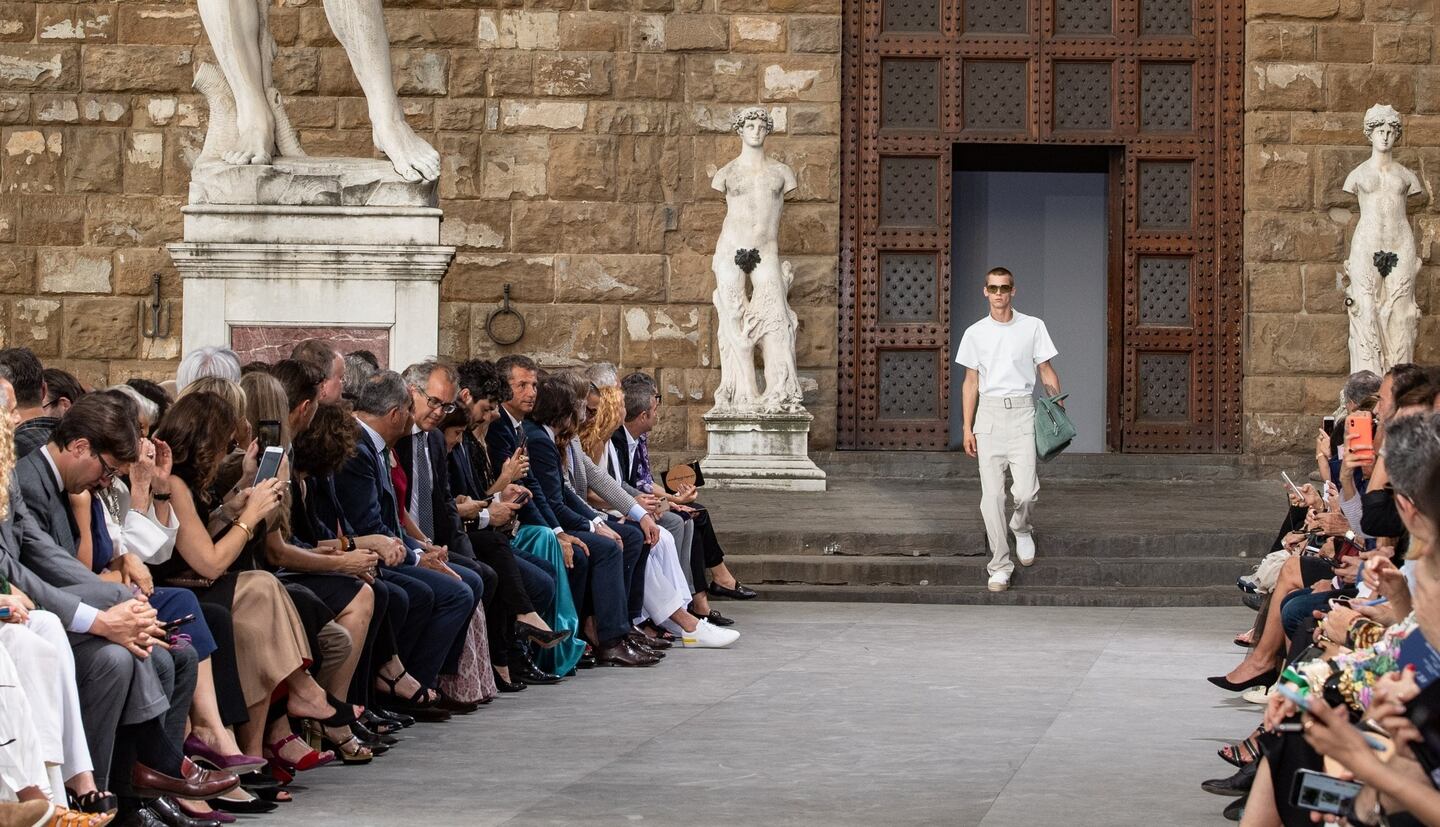
The Business of Fashion
Agenda-setting intelligence, analysis and advice for the global fashion community.

Agenda-setting intelligence, analysis and advice for the global fashion community.

LONDON, United Kingdom — Menswear shows are making a comeback.
The mini-trend marks a 180-degree turn for the fashion industry. At the start of 2019, insiders were debating whether there was a point to men's fashion week at all, particularly in cities such as London and New York where menswear designers have struggled to gain traction.
<span>There's more men to convert into caring about fashion that have not yet been converted; there's more room to grow there.</span>
"The harmony of co-ed shows has not only grown due to gender fluidity and brands wanting to create a single creative vision, but because it ultimately makes commercial sense," said Fiona Firth, buying director at Mr Porter.
But even as fashion shows provide diminishing returns as a way to win over buyers and editors, brands are doubling down on the power of the runway as a marketing tool. As Moncler's monthly drops, Chanel's ostentatious cruise shows in far-flung venues and Versace's internet-breaking celebrity guests show, the release of a collection is an unparalleled opportunity to generate hype.
ADVERTISEMENT
Co-ed shows are still very much here to stay — Jacquemus' 10-year anniversary show is a triumphant example of this, and on November 5, 2019 Versace announced that it would present its men's and women's Autumn/Winter 2020 collections in one show during women's fashion week. However, Peskowitz also predicts that a shift to standalone men's shows doesn't mean the end of dual-gender collections from the same brands.
"I'd be very surprised if brands like Gucci, who are showing men's collections in the men's calendar, then refrained from showing [men's clothing in] the women's cycle as well," he said. "Strategically speaking, you'll be seeing more menswear everywhere, meaning more deliveries, meaning more newness."
This article was updated on Tuesday, November 5, 2019.
Related Articles:
[ Inside LVMH's Plan to Conquer MenswearOpens in new window ]
[ Men Are Changing. Are Brands Keeping Up?Opens in new window ]
[ The Return of the Hyper-Sexualised MaleOpens in new window ]
From where aspirational customers are spending to Kering’s challenges and Richemont’s fashion revival, BoF’s editor-in-chief shares key takeaways from conversations with industry insiders in London, Milan and Paris.
BoF editor-at-large Tim Blanks and Imran Amed, BoF founder and editor-in-chief, look back at the key moments of fashion month, from Seán McGirr’s debut at Alexander McQueen to Chemena Kamali’s first collection for Chloé.
Anthony Vaccarello staged a surprise show to launch a collection of gorgeously languid men’s tailoring, writes Tim Blanks.
BoF’s editors pick the best shows of the Autumn/Winter 2024 season.